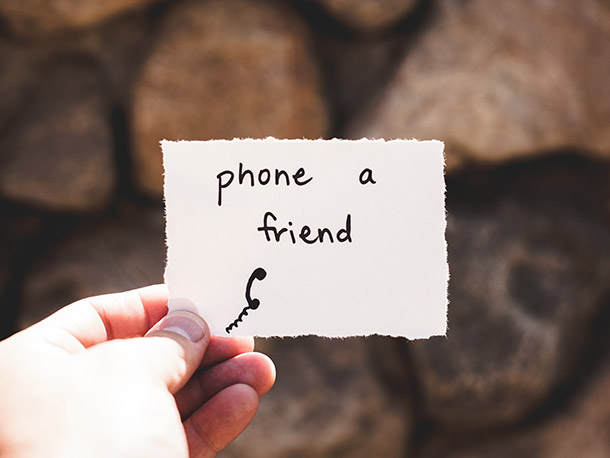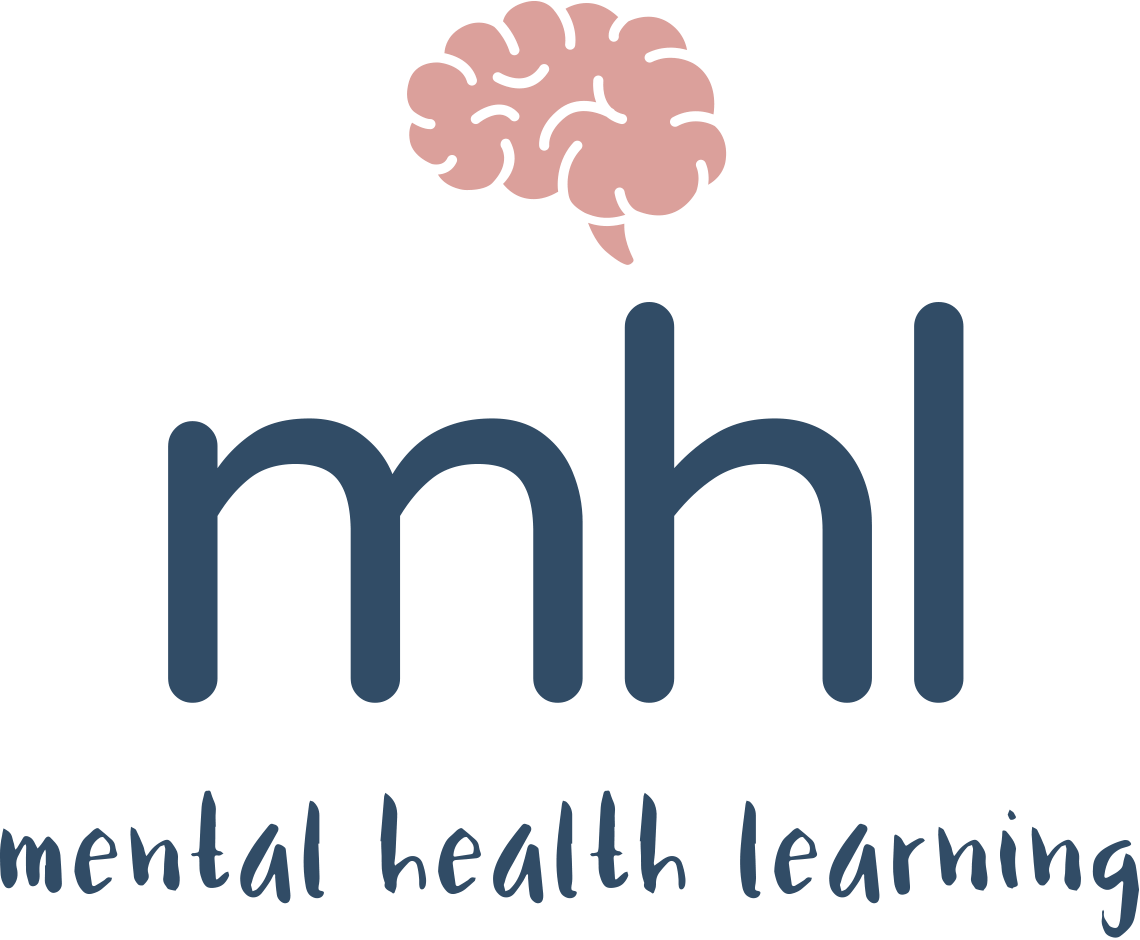How this page can help
This page has advice and information that can help if you are worried about your mental health, harming yourself, and/or thinking about suicide. It can also help if you are concerned about someone else. You might find it useful to bookmark this page.
Mental health
How are you?
It’s a good idea to regularly check in with yourself. How are you feeling today? Can you give yourself a score from one to ten and reflect on what’s contributed to your score?
Understanding your own mental wellbeing is very worthwhile – what makes you feel good, and what makes you feel down.
Knowing this information is invaluable so you can regularly take part in acts that maintain good mental wellbeing, or help when you’re feeling low, and – where possible – avoid the things that make you feel down.
The Five Ways to Wellbeing are an example of five things we can do to improve and sustain good mental wellbeing:
- Connect
- Be Active
- Give
- Keep Learning
- Take Notice
Take a look at our free downloadable guides to find out more and see how you can fit these into your day.
My mood seems low all the time
Your mental health will likely always vary. Your mood and your feelings will fluctuate. But if your low mood continues for a long period of time and is affecting your day to day life, it’s time to ask for some support.
Some of the things that could indicate you’re not coping as well as usual might be:
- Withdrawing from others/usual activities
- Increased use of alcohol/drugs
- Feeling tired a lot of the time
- Feeling irritable on a regular basis
- Feeling upset/tearful on a regular basis
- A change in your sleeping or eating habits
- Feeling a burden to others or that no-one cares
- Poor concentration
- Headaches
- Feeling overwhelmed
- Harming yourself
- Thinking about suicide
It would be a good idea to talk to your G.P. if you feel your mental health is suffering.


Suicide
I’m worried about someone
Your intuition is the most powerful tool that could tell you if someone needs help. Even if you can’t put your finger on it but something is telling you that you ought to be concerned about someone, trust your instinct.
You might not know what to say and you may be worried about what you should do if there is something serious, but reaching out to someone doesn’t mean you have to be the only one helping them. Quite often it’s the case that we just need someone to listen and talk to.
Some of the things you’ve noticed that might be causing you concern could be:
- Emotional outbursts
- Withdrawing from you or others
- Isolating themselves where they previously didn’t
- Seemingly hopeless talk such as “there’s no point anymore”, “i feel so low”, or “nothing is getting any better”
- A change in mood
- A change in appearance
We all react to emotional distress in different ways so there could be other things you’ve noticed.
Start a conversation – share what you’ve noticed and ask how they are. The most important thing you can do is listen.
Empathise with their feelings, acknowledge their struggles. Don’t feel you have to try and fix what’s going on for them – showing you understand their problems will be more helpful.
It’s important for them – and you – that they have a support network of individuals and services if needed. Explore who else they can share their feelings with and support them to talk to others if they don’t feel able to do this alone.
Thoughts of suicide are not uncommon and can affect one in five adults in a lifetime. Ask about suicide clearly and directly: “Are you having thoughts of suicide?” You will not create feelings of suicide by doing this.
What does it mean to have thoughts of suicide?
Thoughts of suicide can feel confusing, scary, and overwhelming.
As many as one in five adults report having thoughts of suicide at some point in their lifetime.
Thoughts of suicide can occur at any time in someones life. They can be accompanied by feelings of hopelessness, worthlessness, loneliness, and it may feel as though there is no way out.
Feeling this way can result from any kind of problems in life. Thoughts of suicide don’t occur following certain specific life events; rather they develop from the way an individual feels about life events. Loss and pain are usually present, but don’t have to be.
A thought of suicide is usually defined by the thinker. For some it may be a brief fleeting thought, for others thoughts may last much longer.
If you are having thoughts of suicide, or worried about someone who is, view the Seeking Help section of this page for information on helplines and services which can help. You may also be interested in attending our training which teaches how to support a person with thoughts of suicide.
Self-harm
What is self-harm?
Self-harm is most common amongst young people, affecting around 1 in 12 under 15s.
Self-harm is when a person intentionally does something to hurt themselves. This can take different forms and it usually occurs because the person is trying to cope with problems in their life.
Self-harm can have different meanings for the indiviudal.
- Relief
- Punishment
- Numbness
- To feel something, anything
The feeling however, is usually temporary and can be accompanied by feelings of guilt and shame.
Often the individual feels there is no other way to deal with their problems, but by accessing help and support and identifying the reasons behind the self-harm and the feelings it creates, alternatives can be found.
If you are harming yourself, try to talk to someone you trust. A friend, relative, colleague or teacher. You could also talk to a professional such as your G.P.
If you have injured yourself and you are worried about the injury and think you need medical assistance, talk to someone who can help, such as someone with access to a first aid kit, a G.P. or visit A&E if you think your injury might be life threatening.
I’m worried someone I know is harming themselves
Self-harm is often accompanied by feelings of guilt and shame, and as a result, self-harm behaviour can often be very secretive.
The individual may be worried about others finding out, and how they might react.
If you are worried someone you know is harming themselves, think about how you might approach this with them and be mindful of the reaction you might get.
Stay calm, and reflect back the behaviours or the signs you have noticed that suggest self-harm. The individual may be defensive, and need reassurance that you aren’t angry at them for doing this and just want to help them.
It may be that the person may prefer to speak to someone else. Have a conversation about who this might be and how they will reach out to them, and ask if they need your help with this.
If the individual is prepared to talk, stay calm, listen patiently, and try not to panic. They need you to be understanding and non-judgmental.
Listen for the reasons behind the self-harm, explore how the self-harm makes them feel and what alternatives could replace the self-harm, that meet the same feelings.
For example, if self-harm helps relax the person, can they replace it with a bath?
If self-harm helps the person release tension, can they replace it with exercise?
Consider attending our Self-Harm Alert training to find out more.


Seeking help
If you are experiencing emotional distress, thoughts of suicide, and/or harming yourself, it may feel as though nothing can be done to help you get through this difficult time, but there are many individuals and services who can support you. Reaching out for help, to talk to someone, is an important first step.
Here are a few services that you may want to try. You can also explore whats in your local area, using the Hub of Hope website.
Helplines & websites
Mental health
MIND – Mental Health Charity
Young minds – The UK’s leading charity fighting for children and young people’s mental health
Anxiety UK – Support for individuals with anxiety
SEED – Eating Disorder Support
BEAT – Eating Disorder Support
SANE – Support for anyone with a mental illness
OCD Action Support for anyone affected by OCD
Bipolar UK – Support for everyone living with Bipolar
The Mix – Information, advice, and support for under 25s
Child Line – Support for under 18s
Self-harm
Youngminds – the UK’s leading charity fighting for children and young people’s mental health
Self-Injury Support – Support for anyone who uses self-injury
Self-Harm UK – Self-harm recovery, insight and support
Suicide prevention
Samaritans – A listening service
PAPYRUS Prevention of Young Suicide – Information, advice and support for under 35s and anyone concerned about a young person thinking about suicide
CALM – Campaigning Against Living Miserably – support for anyone
Stay Alive App – A mobile and web suicide prevention app for the UK
Bereavement support
Bereavement Advice Centre – Advice and support for persons bereaved
Cruse – Bereavement support
The Bereavement Trust Bereavement support
Widowed and Young (WAY) – Bereavement support for under 50’s
The Lullaby Trust – Emotional support for bereaved families
Bereavement by Suicide
Listening Ear – Amparo bereavement service for anyone affected by suicide
Survivors of Bereavement by Suicide – Support for anyone affected by suicide
Disclaimer
The information provided is not intended as a substitute for professional services. Please seek help from a crisis service, doctor or mental health service if you are experiencing mental ill-health, self-harm, thinking about suicide, or worried about someone who is.
